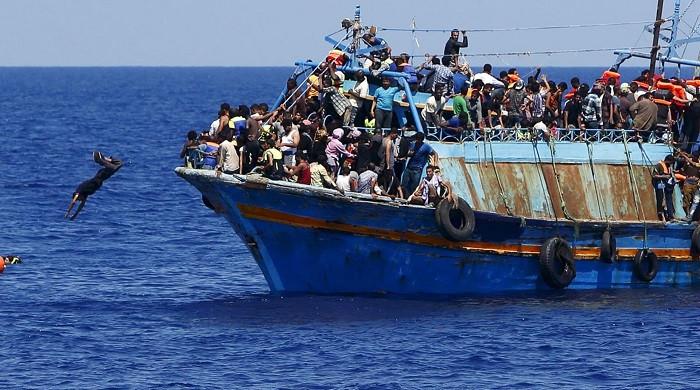Pak efforts against terrorism yielded 'some success': US Defense Intelligence Agency
Islamabad desires operations against the anti-state elements present in Afghanistan and looks to the US and Afghanistan for their cooperation
March 07, 2018
Pakistan's continuing operations in the war against terrorism "have had some success in reducing violence" from militancy and sectarianism, said a report prepared by the Defense Intelligence Agency (DIA) and submitted Tuesday to the US Senate's Armed Services Committee.
The country desires operations against the anti-state elements present in Afghanistan and, at present, looks towards the United States and Afghanistan for their cooperation in this regard, the Worldwide Threat Assessment update stated.
"Islamabad is likely to proceed with its counterinsurgency operations and border management efforts along its western border while sustaining counterterrorism and paramilitary operations throughout the country," the DIA report read.
It also said Pakistan intends to continue its operations against border infiltration and will sustain border management at the Western Afghan frontier.
"These efforts have had some success in reducing violence from militant, sectarian, terrorist, and separatist groups, but Pakistan will look to the United States and the Afghan government for support against anti-Pakistan fighters in Afghanistan," it added.
Afghanistan and Taliban
Taliban, as usual, are a threat to the peace and stability in Afghanistan and are increasing their stronghold in the tribal areas, the DIA report claimed.
"Rural areas will remain contested between the Taliban and the ANDSF over the next year as the Taliban consolidates control in these areas and attempts to pressure provincial capitals, predominantly in the south and northwest."
However, the Afghan security forces are gradually gaining footing by bumping up their defensive capabilities and have, at numerous instances, averted attacks in densely populated areas.
"We expect the Taliban to threaten Afghan stability and undermine public confidence by conducting intermittent high-profile attacks in urban areas, increasing influence in rural terrain, threatening district centres, and challenging vulnerable ANDSF locations."
It was stressed that the Afghan security forces need to take steps to eliminate corruption.
"The ANDSF will almost certainly need to focus on increasing its fighting capability, improving its leadership development and unity of command, and countering corruption to further develop a sustainable security solution in Afghanistan that would compel the Taliban to seek negotiations to end the conflict.
"Continued coalition airstrikes as well as train, advise, and assist efforts this year will remain critical enablers to improving the ANDSF’s ability to forestall Taliban advances beyond rural areas and in extending security and governance."
The ANDSF stands for Afghan national defence and security forces.
India and the LoC
The persistent skirmishes between Pakistan and India along the Line of Control (LoC), on the other hand, also pose a threat to the relations between the two countries. Further, it is expected that both states will stick to their positions along the LoC this year.
"Continued exchange of heavy fire between Indian and Pakistani forces along the Line of Control poses a risk of inadvertent or gradual escalation of hostilities. … We expect that both sides will maintain this elevated force posture along disputed border areas through the remainder of 2018.
The DIA report also said India wants to prove its mettle as a world power and, therefore, believes its nuclear power is important to this cause.
"New Delhi seeks status as a global power and perceives its strategic forces as necessary elements to achieve that goal."
India has developed its first nuclear submarine and handed it over to its navy, with a second one soon to be delivered, as per the report. In order to enhance its army, the nation is working tirelessly and is doing so to prove it can manage and safeguard both its internal interests as well as those pertaining to the Indian Ocean.
"India has put its first domestically built nuclear submarine, the INS Arihant, into service, and is set to take delivery of its second nuclear submarine, the INS Arighat, in 2018.
"India continues to modernize its military to better posture itself to defend its interests at home and in the broader Indian Ocean region while reinforcing its diplomatic and economic outreach across Asia."
At the same time, India, the report states, hopes to show that it has well-established diplomatic and economic ties in Asia.











